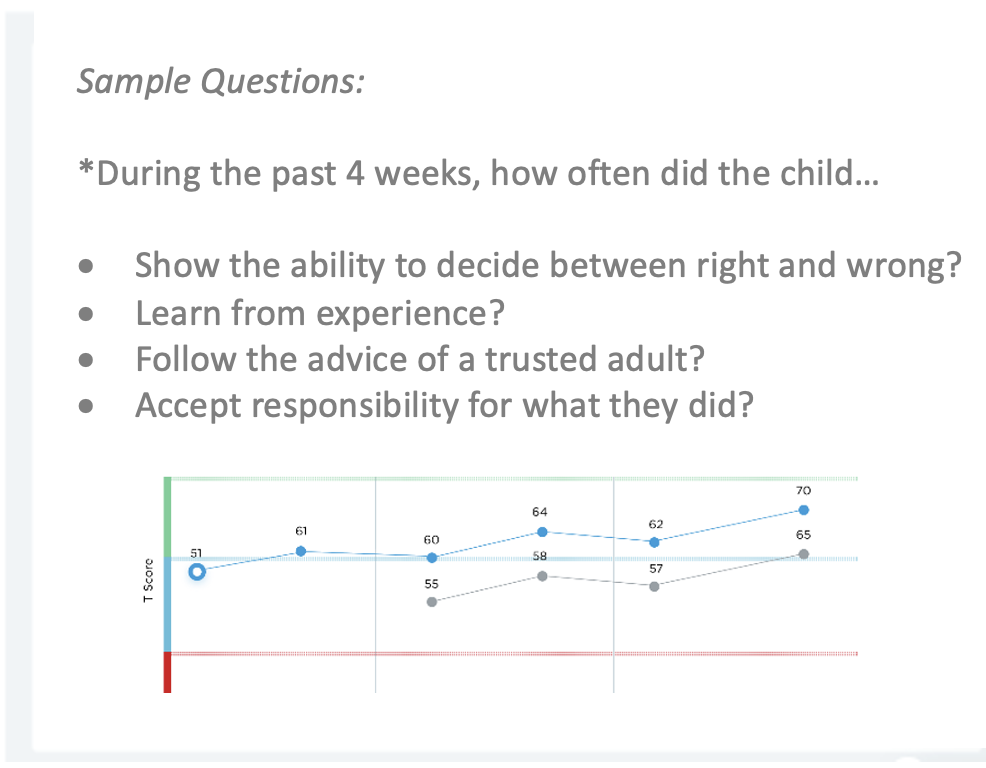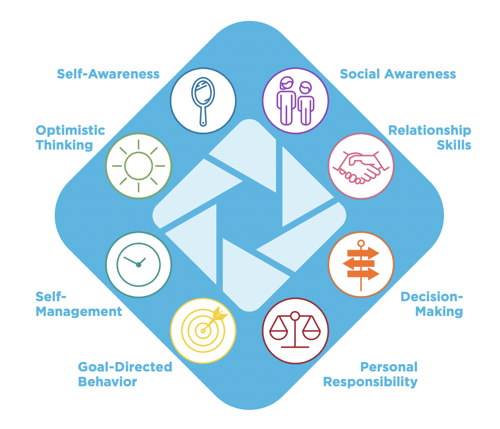NYC Families
"When students are grounded in supportive learning environments, they are able to take the intellectual and artistic risk needed to grow into themselves and their future"
-Meghan McMahon, Principal, Urban Assembly School for the Performing Arts
Social-emotional skills are vital for student success inside and outside of school. Research has consistently shown that SEL supports:
Academic Achievement
Student Well-being
Success in School and Life
Positive Social Behavior
The tool will be completed by an adult who knows the student well- in most cases their teacher or school support staff member.
They will assess to what degree each student has demonstrated specific social-emotional skills such as:
-
-
-
-
- Demonstrating self-control
- Persisting at challenging tasks
- Making good decisions
- Working well in groups
-
-
-

Resources for Families
Expand each option for more information:
1. Encourage a Growth Mindset
How you talk about your child’s abilities can have a profound impact on their beliefs.
Statements like “You are so smart.” or “You were born to do this!” promote a fixed mindset. Children with a fixed mindset tend to believe abilities are something they were born with or without instead of skills they can develop.
A growth mindset, on the other hand, helps students know they can increase their abilities through hard work, and it helps create the desire to do so.
Promote a growth mindset by focusing on your child’s efforts in solving a problem or working toward a goal. Try saying something like “You worked so hard to solve that problem!” or “You don’t understand yet, but you just need some more practice.”
2. Find Ways to De-Stress
3. Practice, Practice, Practice
Just like learning a math or reading concept, children need time and opportunities to practice social and emotional skills.
Provide many opportunities for your child to practice SEL and keep in mind that making mistakes is an important part of the learning process.
4. SEL @ Home Activity: Self-Awareness
There are so many ways to build social and emotional skills at home. Here are three resources you can use to help your student increase their social and emotional skills:
Self-Awareness: A realistic understanding of our own strengths and weaknesses, coupled with a desire for self-improvement, is crucial for success. We also need to know how to work through failure and disappointment and how to reflect on how we used our strengths when we achieve a goal.
5. SEL @ Home: Social Awareness
Social-Emotional Skills Measured
Click below to access the "Aperture 8" guide to learn more about these skills:

Have Questions? Check below for FAQs:
What is an SEL Screener?
A social-emotional screener is a brief questionnaire that asks about various aspects of a student’s social-emotional wellbeing. It is designed to assess their social-emotional skills (things like decision making and relationship building) at a point in time. The purpose is to inform classroom teachers, parents, and school staff on how to best support the growth of these skills.
How is the screener completed?
The screener is completed online with pre-populated items and response choices. It is a Likert Scale instrument with 5 response choices for each of the 40 strength-based items.
It takes up to 5 minutes to complete and is scored automatically through the online portal. Scores are organized according to the 8 broad domains of social-emotional competence with categorization as typical performance, area of strength or area of need.
Who completes the screener?
The adult who knows the student best will complete the screener. Each school will make a determination about who that is. In elementary schools, this is likely the classroom teacher. In middle or high schools, it may be the advisory or homeroom teacher. Schools will have a choice in how to determine this.
What are some of the questions?
Sample questions from the DESSA:
*During the past 4 weeks, how often did the child…
- Show the ability to decide between right and wrong?
- Show good judgement?
- Learn from experience?
- Prepare for school, activities, or upcoming events?
- Follow the advice of a trusted adult?
- Accept responsibility for what they did?
What happens after a screener is complete?
The information collected through the screeners is used to inform the implementation of a multi-tiered system of social-emotional support in the schools. It will be used to inform how universal, preventive social-emotional supports are offered and identify individual students who may require additional support.
At the classroom level, teachers can analyze screening data for their class as a whole and identify areas of their social and emotional learning (SEL) curriculum that can be strengthened to support student growth and development.
Students who may need additional support will be referred to the school’s Crisis Team (or comparable teaming structure) for additional follow-up to determine if supportive services are warranted and if so, what the most appropriate intervention is.
Will this be used to label students or diagnose mental health problems?
The screener is a broad social-emotional instrument. It is not a diagnostic mental health assessment and it will not be used to make special education referrals or mental health diagnoses. There are absolutely no labels applied for students who participate in screening.
Can parents/guardians opt out of the screener?
Yes, there is a consent process that allows any parent or caregiver to opt out of the screener for their child(ren).
If you do not want a staff member to complete the DESSA screener for your student, you must write a letter to your student's principal stating that.









